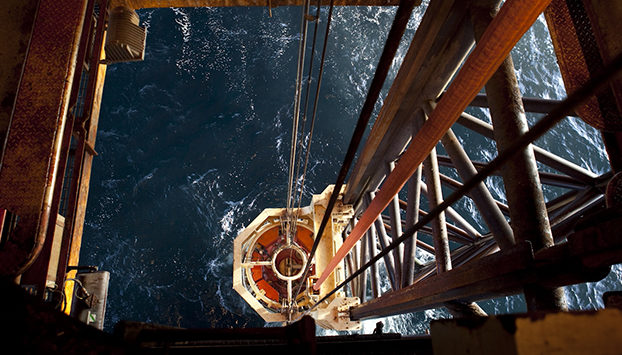
The “reality” of a potential strike in the North Sea industry is now hitting companies, according to a top industrial relations expert.
Trade union members from Unite announced earlier this week members had voted in favour of strike action.
It comes after the Caterers Offshore Trade Association (COTA) said it would not be able to honour the second part of a two-year pay deal which would see a rise in pay of 1.3%.
If Unite, which said its next move would be determined shorty, presses ahead with strike action it will be for the first time in a generation.
The result of the ballot saw 54.2% of members vote for strike action while 62.7% voted for action short of a strike.
COTA is made up of six companies – Aramark, Entier, ESS, FOSS & ESG, Sodexo and Trinity International Services – which supply catering and auxiliary services offshore.
Sean Saluja, a partner at Burness Paull and head of their employment division, said a possible strike could have stern ramifications for the North Sea oil and gas industry.
He said: “This is now a reality that may be hitting the industry, in a more real way than the consultative OCA ballot.
“It’s now becoming a very challenging issue for companies to contend with.
“Here however, there’s some very stark economic factors at play, it might mean there’s no room for negotiation.
“My best advice would be two things – one would be to communicate and communicate as swiftly as possible.
“The business can only propose what’s on the table and explain the economic factors and explain the difficult circumstances the industry is in.
“I would be emphasising to the workforce both the reasons for the difficult circumstances and what the impact of strike action could be.
“Industrial action here may accelerate companies taking their investment elsewhere and end in the ultimate closing down of production fields.
“If we face these problems and you’re in industry and looking where to place your investment – why would you do it here?
“The second thing I would be telling companies is to commit to contingency plans in order to minimise disruption.”
In a statement following the result of the Unite ballot, COTA chairman Peter Bruce, said the body understood workers frustration over pay.
He echoed Saluja’s sentiment that any strike would have a long-term negative effect on the industry and jobs.
Bruce added: “Strike action can only threaten the long term sustainability of our industry and jeopardise jobs. We urge workers to remember that if Unite does call on you to take strike action no one is obliged to participate.
Saluja said the challenge for COTA was the limit of its power to encourage oil and companies to meet the pay increase.
He added:”There’s a limit to how long industrial action can take place. The complicating factor here where we are talking about COTA is that member companies don’t set their budgets – they are put forward by the oil companies.
“They’re the ultimate players in the industry and facing difficult circumstances and the COTA member companies can’t get more money to give.
“I strongly feel that industry needs to learn how to communicate more with one voice. I’m not overly surprised by the result given by what had been said in the build-up to it.
“I would still be surprised If it did happen but I would say we are definitely getting one step closer.”
Recommended for you
